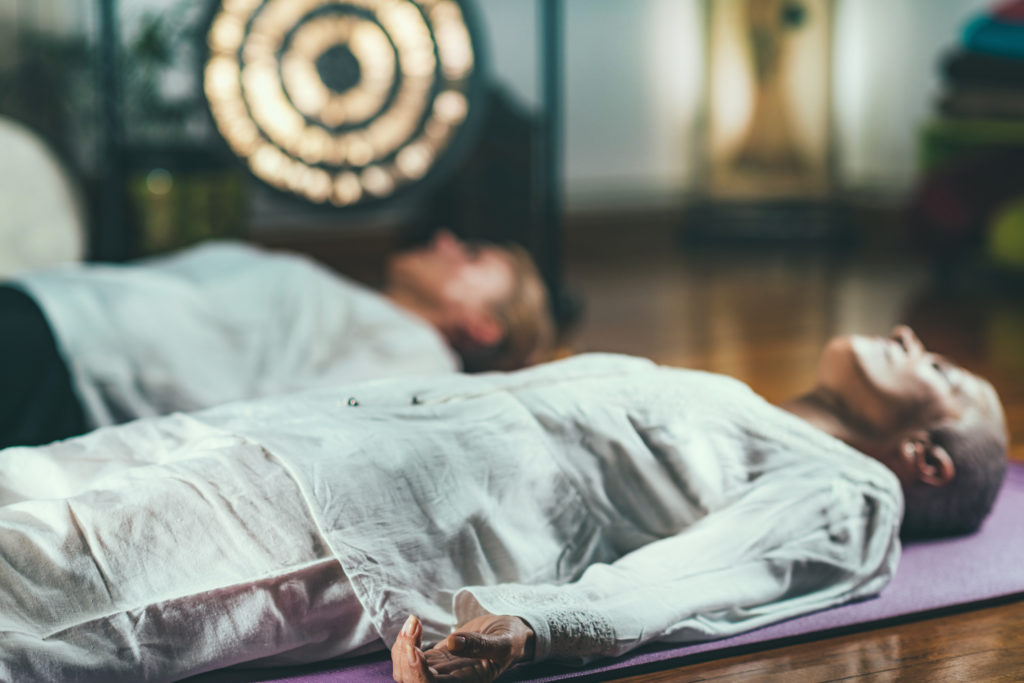Quick Hits
Daily brief research updates from the cognitive sciences

We do know that mindfulness can be effective in many areas (such as pain reduction here) but a direct comparison to other interventions is often missing. This study is therefore a first of its kind – and an important one.
In this Elizabeth Hoge and colleagues of Georgetown University Medical Center compared mindfulness training with a common anxiety drug in those with anxiety disorders.
Anxiety disorders include general anxiety, social anxiety, panic disorder, and fear of certain places or situations, amongst others. These can be debilitating to some people and those who suffer form these are at higher risk of suicide and disability and are commonly treated in psychiatric clinics. Hence finding other effective interventions would be highly beneficial to the individuals but potentially also reduce costs and reliance on medication with all its side effects.
In this study 276 patients were recruited, and they were then randomly assigned to either a Mindfulness Based Stress Reduction (MBSR) programme for eight weeks or to the commonly used anxiety drug escitalopram. The patients were then assessed at the end of the eight-week intervention and then post treatment at 12 and 24 weeks after enrolment.
Of note is that the post treatment assessments were blinded meaning that the assessor did not know if the patient had been in the MBSR or drug group.
What were the results?
The researchers used a validated assessment which ranks anxiety on a scale of 1-7 and participants from both groups saw a reduction (1.35 for MBSR and 1.43 for the drug which in this case are statistically similar). This translated into about a 30% reduction in anxiety symptoms – not bad.
The MBSR intervention included a 2 ½ hour in-person class once per week, 45-minute daily home practice exercises and a 1-day retreat during the 5th or 6th week.
This is very promising research showing that a mindfulness intervention is as effective as a drug-based treatment but without the risk of side-effects and the effects extended post treatment. There are some obvious caveats and one is the amount of time needed to invest in this – similar to exercise interventions, many people know they should do it but still fail to complete the activities they should.
Hoge has also continued this research and is currently looking into the effects of online guided mindfulness programmes – I’ll be intrigued to see the results of that too.
But for now, we can now say mindfulness is as effective as drugs – and without the negative side effects – and potentially some very positive long-term impacts on many aspects of life. Good to know!

Andy Habermacher
Andy is author of leading brains Review, Neuroleadership, and multiple other books. He has been intensively involved in writing and research into neuroleadership and is considered one of Europe’s leading experts. He is also a well-known public speaker, speaking on the brain and human behaviour.
Andy is also a masters athlete (middle distance running) and competes regularly at international competitions (and holds a few national records in his age category).
References
Elizabeth A. Hoge, Eric Bui, Mihriye Mete, Mary Ann Dutton, Amanda W. Baker, Naomi M. Simon.
Mindfulness-Based Stress Reduction vs Escitalopram for the Treatment of Adults With Anxiety Disorders.
JAMA Psychiatry, 2022
DOI: 10.1001/jamapsychiatry.2022.3679
More Quick Hits
Neurons for alcohol withdrawal
I’ve reported on alcohol a number of times. Most recently reporting that even low quantities of alcohol appear to age the brain (however, higher quantities are much worse). Researchers had previously found that a signalling molecule pathway in the brain seemed to...
How the Arts Help Self Control
Quick HitsDaily brief research updates from the cognitive sciencesome people criticise arts education, thinking that it is more play and has no clear life function. Normally a certain type of conservative. This is short minded; we know that arts...
How the gut communicates with your brain
Quick HitsDaily brief research updates from the cognitive sciences ust after publishing the article on Serotonin and stating that the gut and brain’s serotonin systems can be considered separate entities, out comes a piece of research to show that...
Are you an “elite sleeper”? It’s in your genes.
Quick HitsDaily brief research updates from the cognitive sciences ’ve reported many times on different aspects of sleep and how important this is for health in general and for brain health in particular. You can go here for a short review of all...
Controlling social mingling by laser
Quick HitsDaily brief research updates from the cognitive sciences here has been plenty of research into brain areas that contribute to our social brain but these researchers around Stephen Mague at Duke University went a step, or two, further and...
Exercise is Infectious
Quick HitsDaily brief research updates from the cognitive sciences his is an older study (2017) I came across and found fascinating. As many of you regular readers will know I have reported many times on the benefits of exercise. But this study was...






